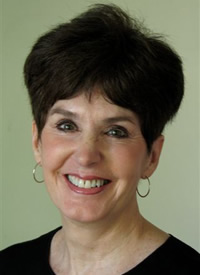
“What memory is for individuals, history is for civilizations; and without the reference points provided by a broadly shared historical consciousness, we soon forget who we are. ‘A culture without memory will be…easily tyrannized over.’” — Wilfred M. McClay, Victor Davis Hanson Chair in Classical History and Western Civilization, Hillsdale College.
By Linda Stamato
In The Devil’s Disciple, General John Burgoyne, when pressed by Major Swindon’s earnest plea to know how history will record what is taking place, answers: “History, sir, will tell lies as usual.”
George Bernard Shaw, that talented and prolific cynic, enjoyed amusing his readers. He understood the forces that control the narrative of history, that place constraints on the honest learning a nation needs to thrive. He wanted to turn that understanding on its head.

It’s a point well taken in the United States, where in some parts of the nation, we continue to elevate figures with roots in white supremacy–and loyal to the Confederacy–as heroes. By doing so, we distort our history.
As David Graham reports in The Atlantic, “For all the high-profile removals of monuments, there remains a stunning number of Confederate Civil War monuments, memorials, and namesakes in public spaces around the country.”
In recent months, we have witnessed simplistic distortions and choice myths become manifest. In books to ban, threats to school boards over teaching the so-called “dark history” of America’s struggle with race, and mandates on curricula by legislative fiat, we see the wishful thinking of “those with a history they’d prefer or desire to strategically advance” rather than what the evidence-based historical record firmly attests.
To be clear, legislation such as this will stifle discussion of how racism and sexism have shaped the country’s history and continue to affect its present.
We are better than that.

Altering the past to conform with an invented history that is largely a myth — whether we’re talking about diminishing the horror and scope of slavery or the debasement of Native Americans to justify taking their land — instead of seeking to understand what happened and why, is no recipe for sustaining a nation. A nation built on lies cannot unite.
As we wrestle with yet another dimension of “the culture wars,” this is far more serious and complex than that characterization would suggest. We need to face straight on what the nation needs to hold together. History and memory play a vital part. We distort it at our peril.
Further from Professor McClay, from his essay, The Claims of Memory:
….the American people can be blamed if we abandon the requirement to know our own past, and if we fail to pass on that knowledge to the rising generations. We will be responsible for our own decline….Small wonder so many young Americans now arrive at adulthood without a sense of membership in a society whose story is one of the greatest enterprises in human history. That this should be so is a tragedy….It is the squandering of a rightful inheritance.
The fear that we Americans might lose our national soul by forgetting who we are and where we came from is not new. Abraham Lincoln had the same fear, even as a young man….In our time, the problem takes the form of a paradox: Though we “know” more and more about the American past, thanks to the labors of specialized professional historians, we know less, because we fail to grasp the overarching meaning of our history, a meaning that would impart coherence to the way we live together. We lack a perspective that would put the great achievements of American history in their proper light, properly weighed against failings and shortcomings, and taking into account the contrast between the dispiriting brutality of most of human history, and the astonishing prosperity and freedom and potentiality of our own…..
We need to think seriously about how to repair the damage done by the neglect, and the distortion, of our history, and devise ways to reinvigorate our history — with all its triumphs and failings. Then we may regain our legacy and continue to build—and unite around–our shared memory.
If we don’t know our history, how do we learn from it?
Linda Stamato is the Co-Director of the Center for Negotiation and Conflict Resolution at the Edward J. Bloustein School of Planning and Public Policy at Rutgers University in New Brunswick. She is a Faculty Fellow there as well. Active in the Morristown community, she serves on the trustee board of the Morristown and Morris Township Library Foundation and is a commissioner on the Morristown Parking Authority.
Opinions expressed in commentaries are the authors’, and do not necessarily reflect those of this publication.






Linda Stamato is so right. Learning’s an ongoing experience. Is does not require going back to school. Recent Ken Burns specials on PBS about Ben Franklin elevated our understanding of this founding father and his place in our history . It demonstrates that we must never stop growing in our understanding of our precious democracy.